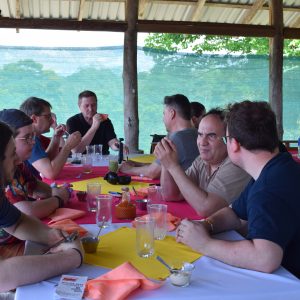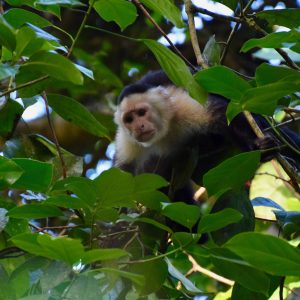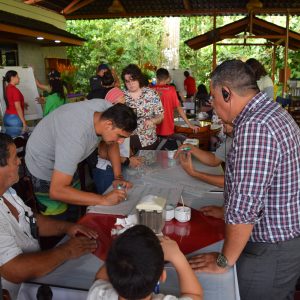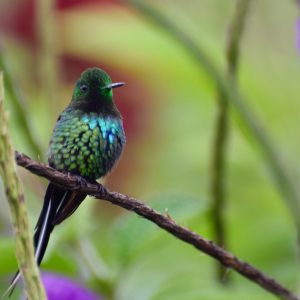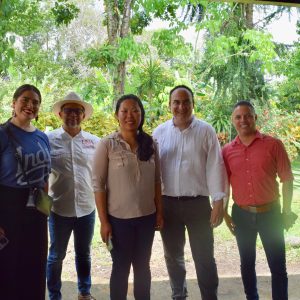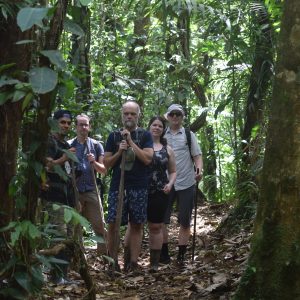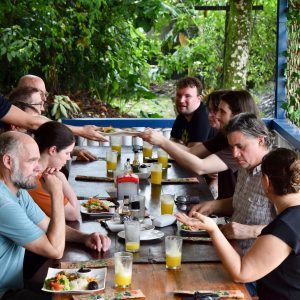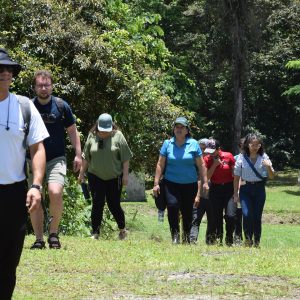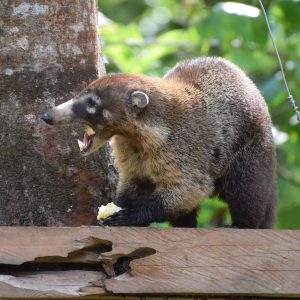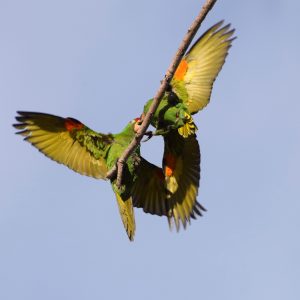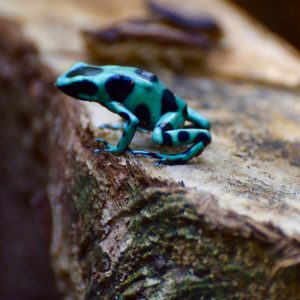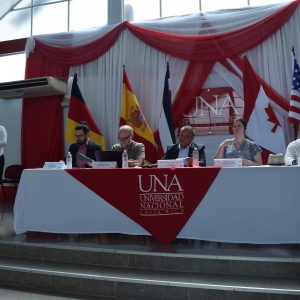The Future of Nature: Sarapiqui
The Sarapiqui event is over, but work on the project continues.
The Future of Nature: Sarapiquí brought together local farmers, ecotourism providers, entrepreneurs, government representatives, educators, industry workers, and crafters in the region to engage a dialogue with Costa Rican and international academics about the future of nature in the region. The main areas of focus were agriculture, ecotourism, and water supply and access, with a view of highlighting local epistemologies and initiating meaningful collaboration toward a sustainable future.
FANE is now focusing on phase two of the project, which includes convening regular meetings of six local working groups in Sarapiqui, completing a community map, as well as writing a one-page vision and white paper with policy recommendations
The event was funded by a SSHRC Connection Grant.
The Essence of FN 2024
What? A four-day interdisciplinary outreach activity in Sarapiquí, Costa Rica, bringing together local stakeholders and international academics.
Why? To foster a collective vision for sustainability in agriculture, ecotourism, and water management in the in Sarapiquí region of Costa Rica,
How? Through dialogue, interactive workshops, and the meeting of different stakeholders and multidisciplinary academics in the region’s ecosystems and communities.
Outcome? Working groups, a white paper with policy recommendations, a community mapping project, and a follow-up workshop.
The Philosophical Pillars
- Environmental Ethics & Justice – Centering local voices in decision-making about land, water, and sustainable development.
- Interdisciplinary Knowledge Exchange -Bridging local ecological wisdom with research in environmental humanities, social sciences, and natural sciences.
- The Future of Nature as a Shared Responsibility – Addressing the impact of climate change and economic pressures through community-driven solutions.
- Critique of Exploitation & Consumer Capitalism – Exploring alternatives to large-scale extractive industries, prioritizing responsible tourism and agriculture.
- Education & Social Mobility – Developing sustainable education initiatives to empower local communities and future generations.
The Process of FN: Sarapiqui
- Community-Driven Inquiry: Local farmers, ecotourism providers, and industry workers discuss challenges and solutions.
- Interactive Knowledge Exchange: International academics and experts engage in site-specific discussions on biodiversity, agriculture, and sustainability.
- Immersion & Place-Based Learning: Events take place at universities, biological reserves, national parks, and local communities.
- Collaborative Policy Development: A core group of 50 locals and 20 academics co-develop a vision and action plan for the future of Sarapiquí.
- Publication & Knowledge Mobilization: Findings are documented in a white paper and discussing them at a follow-up workshop.
The Main Objectives of the Event
- Articulating a Collective Vision – Producing a white paper outlining sustainable development strategies for Sarapiquí
- Strengthening Knowledge Networks – Connecting local stakeholders and international academics for ongoing collaboration.
- Addressing Urgent Regional Challenges – Exploring solutions for pesticide use, water access, and responsible tourism.
- Promoting Sustainable Education and Policy – Developing materials for environmental philosophy and community engagement.
- Building Models for Ethical Development – Creating an outreach framework that can be adapted in other regions.
Working Groups
Six working groups will meet and advise on the following issues:
Socio-Economic Development
•Improve infrastructure, services, and economic opportunities through cooperatives and sustainable businesses.
•Strengthen local identity and community representation through arts, culture, and advocacy.
Climate Change Mitigation & Biodiversity
•Expand conservation efforts through reforestation, waste management, and ecosystem education.
•Utilize local knowledge and experiential learning to raise awareness and promote climate action.
Water Security
•Improve water treatment, sanitation, and resource protection through education and policy.
•Advocate for fair water pricing and infrastructure improvements.
Small-Scale Agriculture & Local Cooperatives
•Promote sustainable farming and cooperative models to strengthen local food systems.
•Integrate agricultural education and resource access for long-term economic sustainability
Sustainable Ecotourism
•Support local ecotourism businesses with funding, training, and regional collaboration.
•Balance ecotourism with agriculture and conservation to ensure long-term sustainability.
Education & Eco-Literacy
•Increase environmental education and youth engagement through hands-on learning.
•Strengthen cultural and biodiversity education to foster local knowledge and conservation
FANE team Kyla Bruff, Sean McGrath, Barry Stephenson, and Joachim Rathmann will be travelling to the Sarapiqui region of Costa Rica in April, 2024, to co-organize the “The Future of Nature: Sarapiqui” event. This interdisciplinary outreach event in environmental ethics and sustainability will bring together local farmers, ecotourism providers, entrepreneurs, government representatives, educators, industry workers, and crafters in the region to enter into dialogue with Costa Rican and international academics in the humanities, social sciences, and natural sciences. Discussions and presentations will focus on the topics of agriculture, ecotourism, and water supply and access in the Sarapiqui, highlighting local epistemologies and collaboration toward a sustainable future. After the event, we plan to produce a white paper with policy recommendations, a summary of the joint vision, a website, a documentary film, and more!
The Future Nature: Sarapiqui Event Schedule
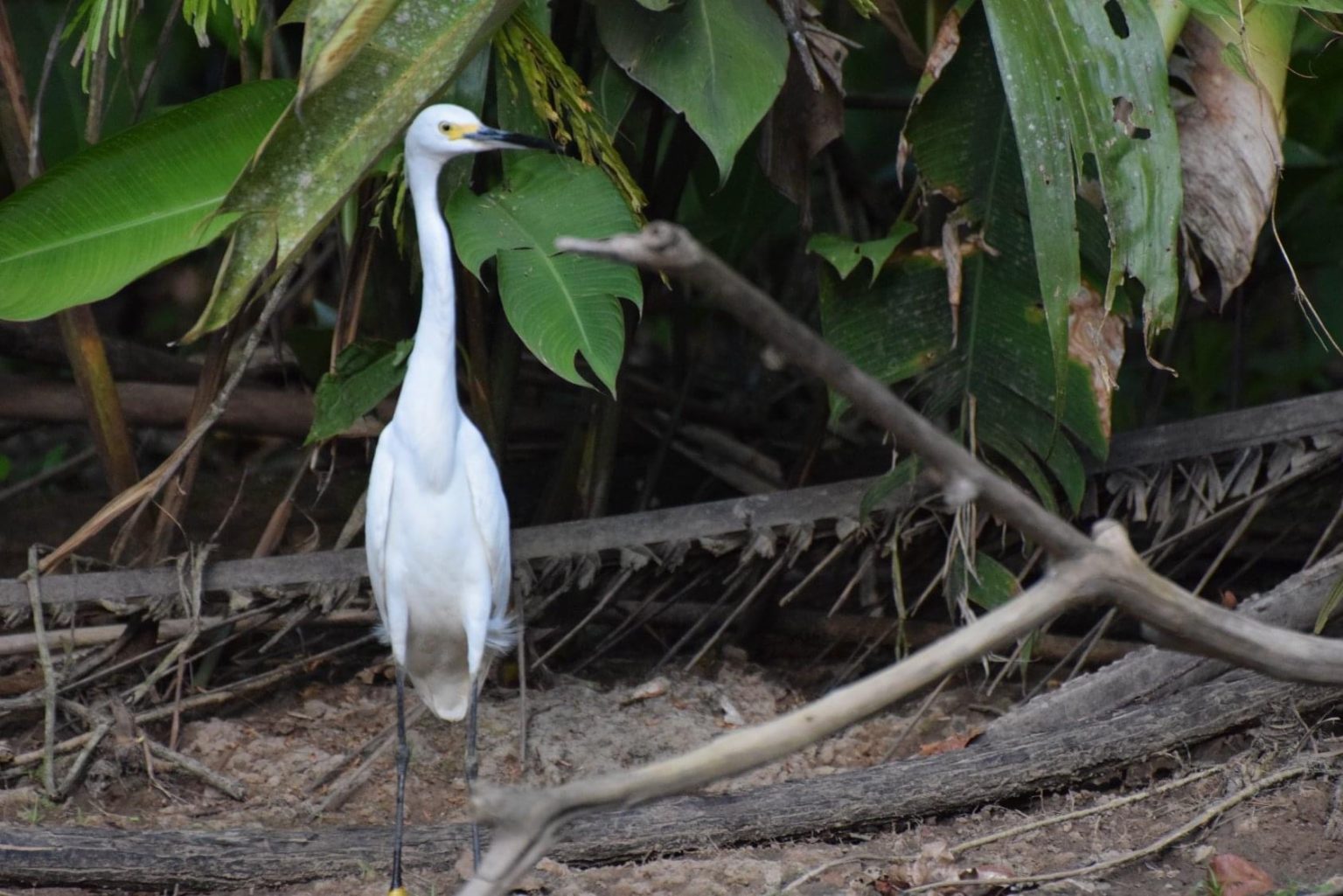
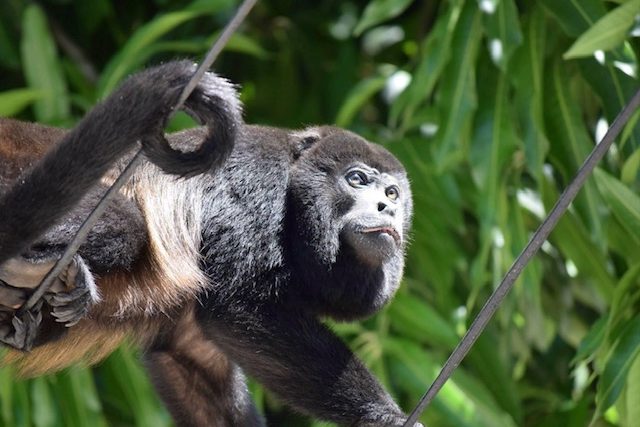
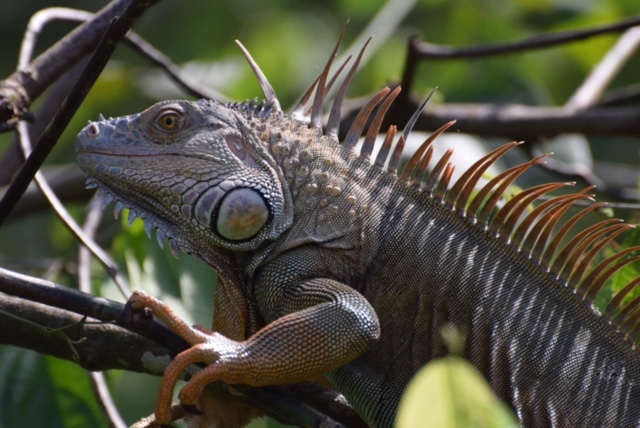
Our Objectives
The Future of Nature: Sarapiqui aims to bridge gaps between local stakeholders (in the agriculture and tourism sectors, the arts, government, and more) and academics to mobilize knowledge within the environmental industry, environmental public affairs, artistic expression, and local knowledges and to promote a deeper understanding of the impacts of ecotourism within the local Sarapiqui region of Costa Rica and the broader community. We also aim to build connections between Carleton University, the National University of Costa Rica (UNA), Memorial University, the University of Costa Rica (UCR), the University of Würzburg, and the University of Cordoba to open possibilities for future collaborations on sustainable, environmental, industry-related, and community-engaged.
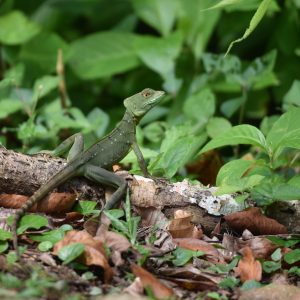
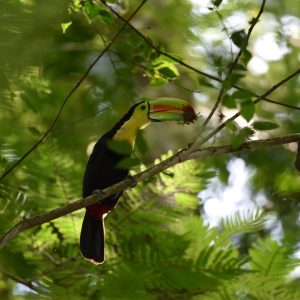
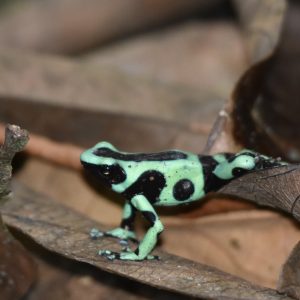
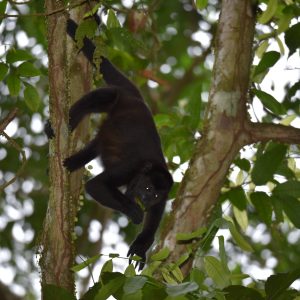
The Future of Nature: Sarapiqui 2024 Sponsors
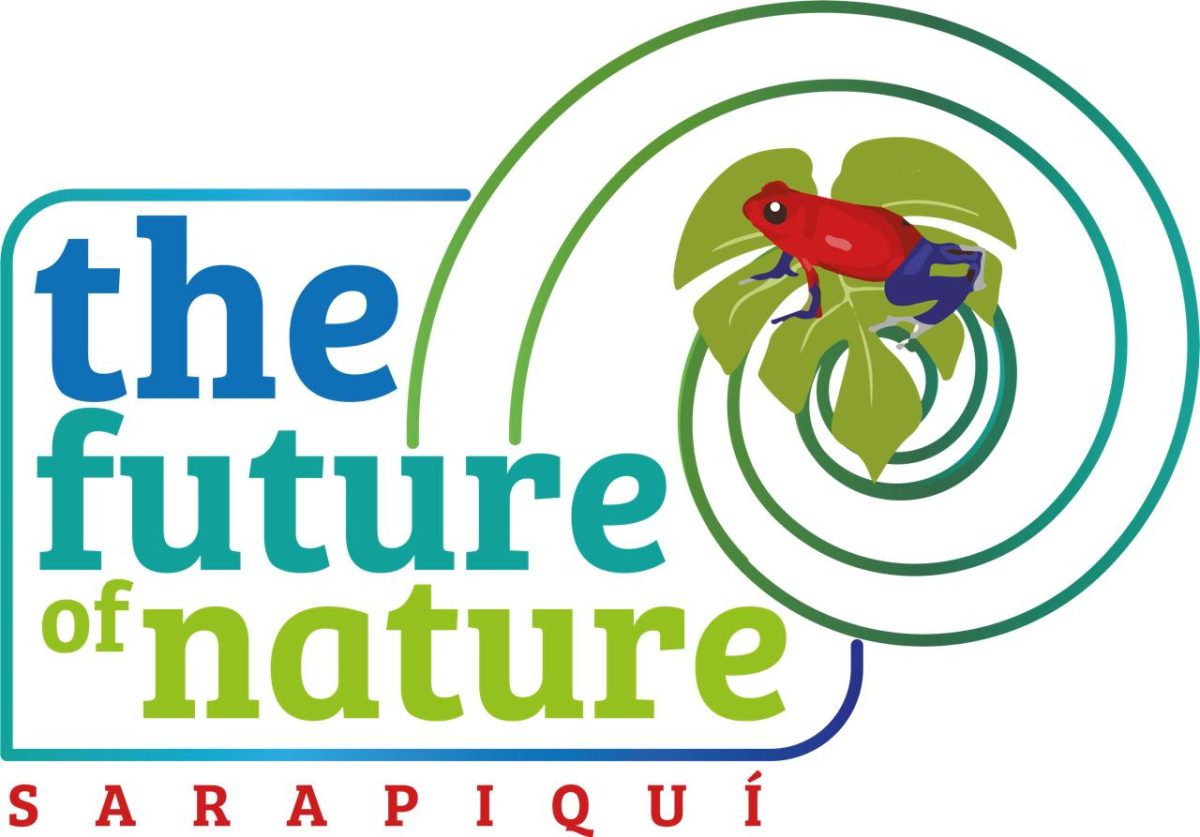
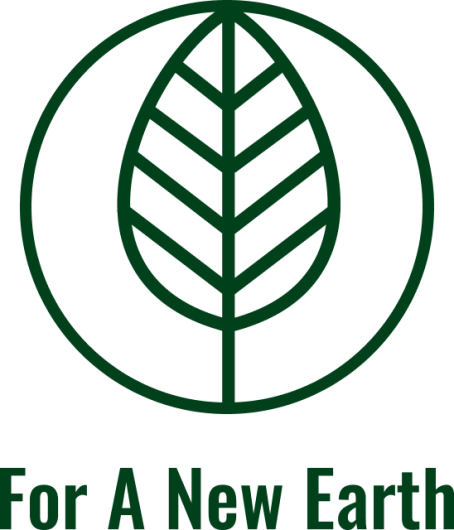
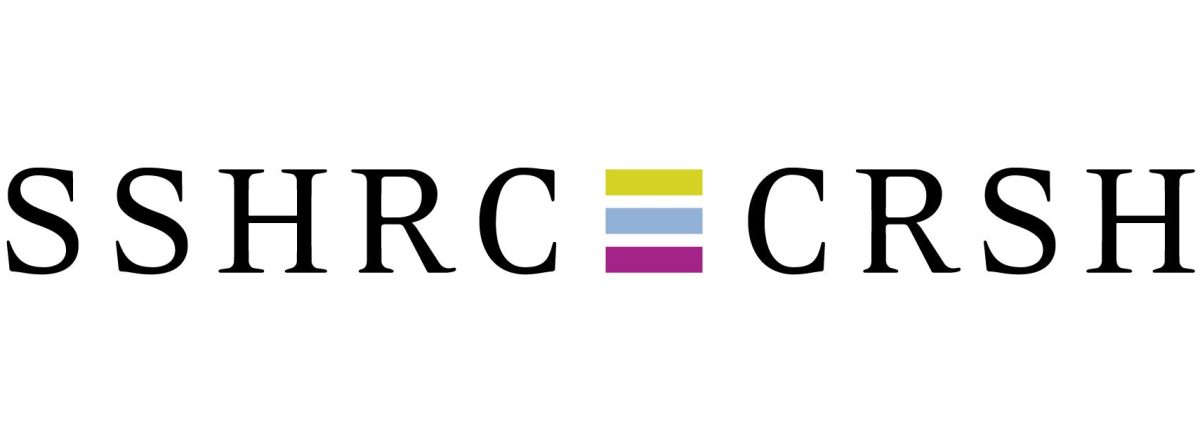
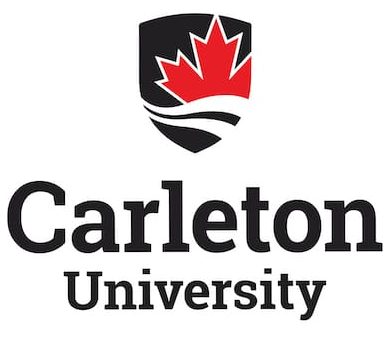

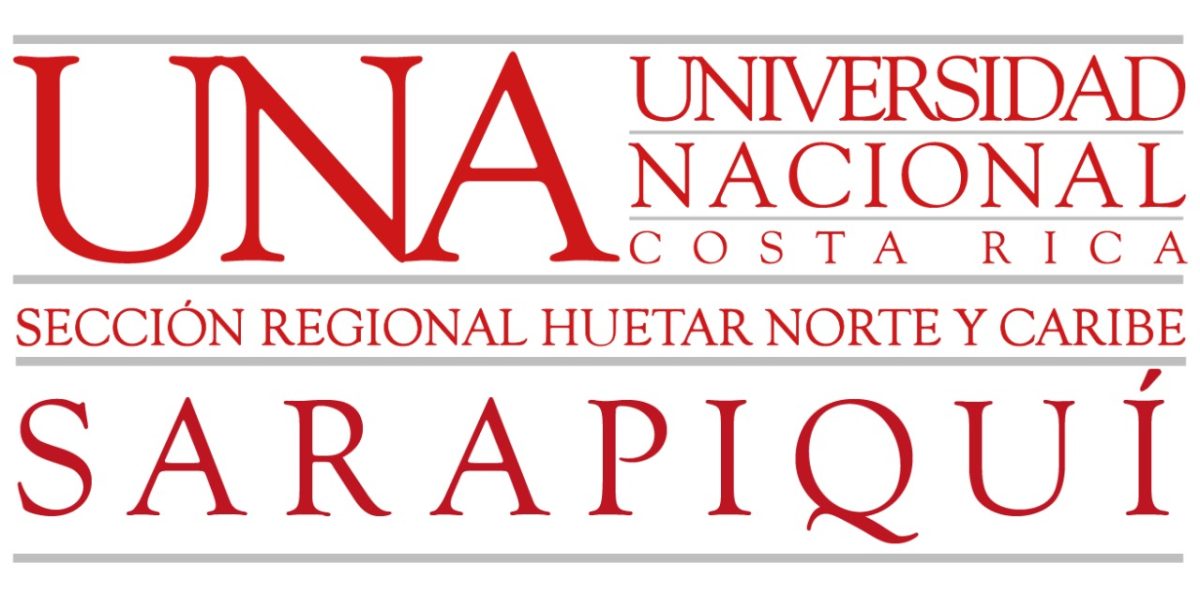
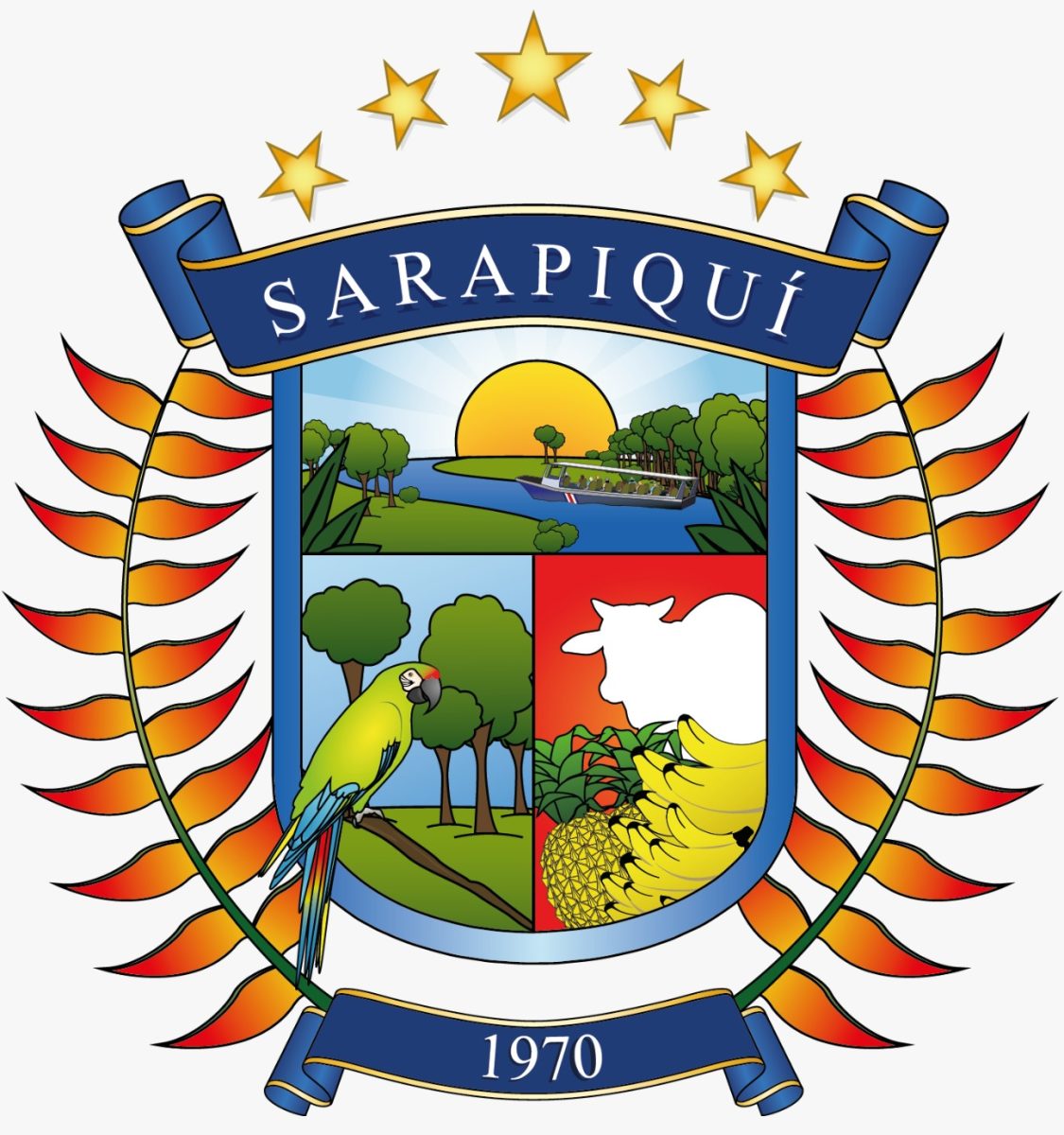
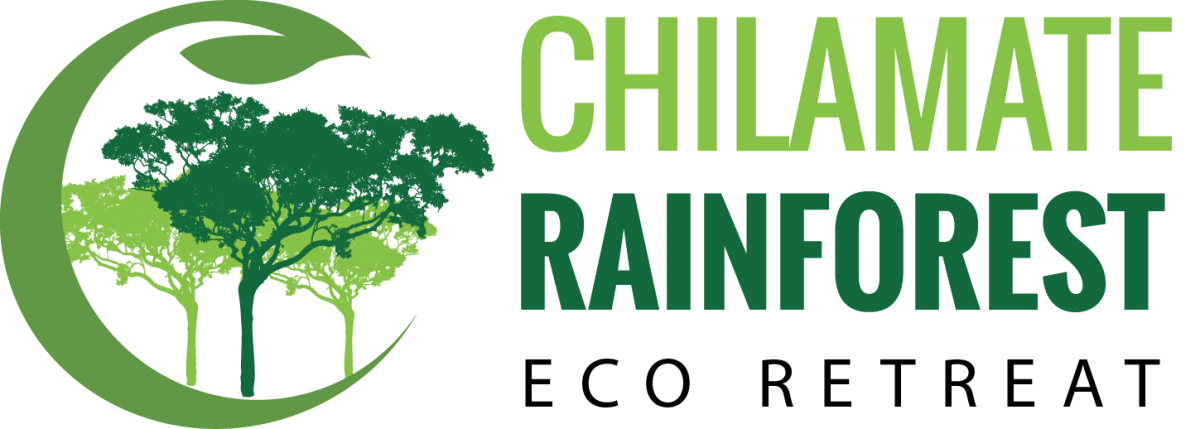
About The FANE Symposium
(Previously known as The Future Nature Initiative)
Integral Ecology in Practice
The FANE Symposium stages ecological interventions in significant land and seascapes by creating an open and celebratory atmosphere for all involved. FNI is animated by the assumption that experiential learning, performance, and art are a necessary means through which new ideas, values, and attitudes are created, tested, and, importantly, embodied.
"How do you change the way the world thinks and acts? By breaking down barriers, between disciplines, between academics and the general public, between communities, between human beings and nature.""
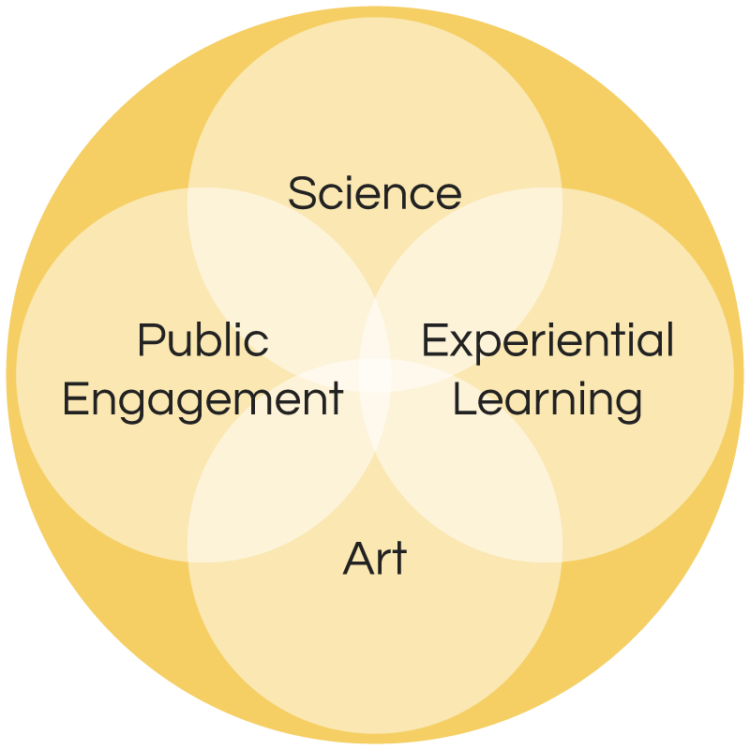
Through knowledge mobilization and public engagement, coupled with experiential learning and the arts, the Future Nature Initiative aims at nothing less than ecological conversion. It is not enough to talk about the challenges facing the earth over the coming years; we must learn new patterns of behavior, imagine alternative models of production and exchange, engage the senses, and intimately acquaint individuals and groups with local environments and cultures.

